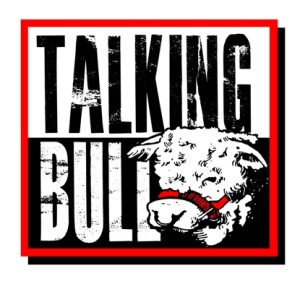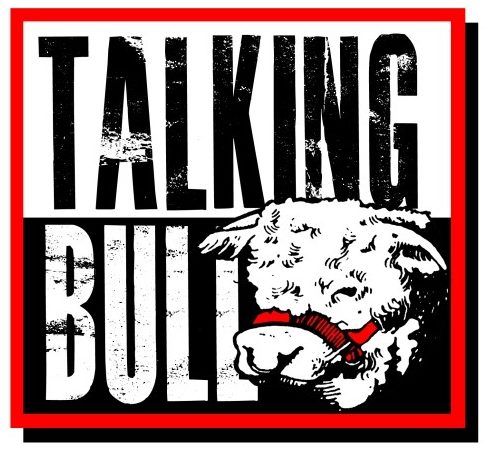 Talking Bull – the Independent Hereford Football Club Supporters’ Magazine which was re-launched at the beginning of the 2015/16 season is on the look out for new contributors ahead of the Bulls Southern League campaign.
Talking Bull – the Independent Hereford Football Club Supporters’ Magazine which was re-launched at the beginning of the 2015/16 season is on the look out for new contributors ahead of the Bulls Southern League campaign.
We differ from regular magazines as we mix material from a team of regular contributors with articles from fans. In fact, anybody at all can write in to either the magazine or the website, and, if their piece is suitably punchy, well-argued, informative or deeply felt, then it will find its way onto our pages. That’s really the whole point.
So, for anyone who has ever idly entertained the outside possibility of putting pen to paper or fingers to keyboard, here are a few little bits and bobs that might just help you to formulate that stunning masterpiece that will one day shoot you to instant stardom around the drinking establishments of Hereford and beyond.
The following guide is merely a suggestion of how you might like to approach writing an article for the fanzine. It is by no means the only or best way, so feel free to ignore it completely!
1. Length
You should decide before you start how long you want your article to be. Generally, you have two choices:
a) One Page – 500-550 words.
b) Two Pages – 1000-1100 words.
In very exceptional circumstances, you may feel that you need more space for your article. We normally reserve the larger slots for interviews or special features, but if you do think that you need three to four pages, by all means do.
In cases where your article relies heavily on statistics or visuals, the word count may be less than stated above, but it may never be more (or people start will ring up complaining about the size of the text). We work on the principle that if you can get it down to 650 words, then you can get it down to 600 and so on. Giving us a bit of space allows us to make your page look beautiful and inviting, encouraging more people to read your words of wisdom.
2. Structure
Having decided on your length, you should think about the structure of your article. There’s nothing worse than a good idea ruined by a rambling introduction and a rushed two-line conclusion. Be clear and concise, try to group your ideas into logical sections, and give each section equal weight within the article.
For example: If I were to write a one-page (500-word) article entitled From the Edgar Street Soup Kitchen, I might split it into the following sections (word limits for each section in brackets):
1. Introduction (100)
2. What happened in the Edgar Street Soup Kitchen (100)
3. Who were the leading participants (100)
4. Why will it take 10 years to put right (100)
5. Conclusion (100)
3. Impact
Two pages of solid text will put people off reading and needs to be of unbelievable quality to maintain people’s interest. Try to think about ways of making it more interesting – box-offs, quotes, statistics, lists, pictures, maps, cartoons, or anything else you can think of.
Bear in mind that mentioning current Hereford players will allow us to drop pictures in easily. If you do have a particular way you want your page to look -just let us know.
4. Accuracy
Aren’t football books and websites brilliant! The range and depth of some of the footy books and sites is quite staggering now and it’s amazing what you pick up from leafing through the latest Rothmans, or checking stats on sites such as www.soccerbase.com – having accurate facts and figures at your fingertips can also help make a very persuasive argument.
Everything you check is one less thing for us to worry about, and whilst getting spellings and facts wrong is nothing more than slightly irritating, we really appreciate it when people make our lives easier. One thing that is important, though, don’t write a single word that you can’t prove is true, or that you wouldn’t stand by in court… please.
5. Save As
If you want to make us smile save your work as a word doc.
6. House Style
Some things in the English Language, like punctuation, for example, are neither right nor wrong, but a matter of choice. For all you anal retentives out there, here are a few brief ways that we like to present material, use them or ignore it, no big deal:
1. Punctuation within inverted commas (“Ipoua’s great.” is correct, “Guinan’s great”. is wrong).
2) Exclamation marks are crap. Only people with no class use them. It’s like telling a joke and then saying, “That was a joke,” when no one laughs.
3) The only words that we will use in upper case are HFC, and TB.
4) Apostrophes on words that end in “s” are tricky: If you pronounce a second “s” add it on (St. James’s Park is crap), if not, don’t (Ben Smith was always the fans’ favourite).
5) Hyphens should have a space before and after – like that.
6) No double spaces… anywhere.
7) If you don’t know how to use semi-colons, don’t bother, they’re a bit of a funny one to be honest; only flash bastards use them.
If in doubt, check back issues of the magazine, and copy what’s in there.
7. Ed’s Final Thoughts
The above guide exists to make your writing better and our lives easier, but it should never restrict you. You can’t teach imagination – it’s the single most important thing an article needs. General rule – a minute of thought is worth an hour of writing. Think inspiration, not perspiration. Now go and write us something fabulous… please.
editor@talkingbull.org


